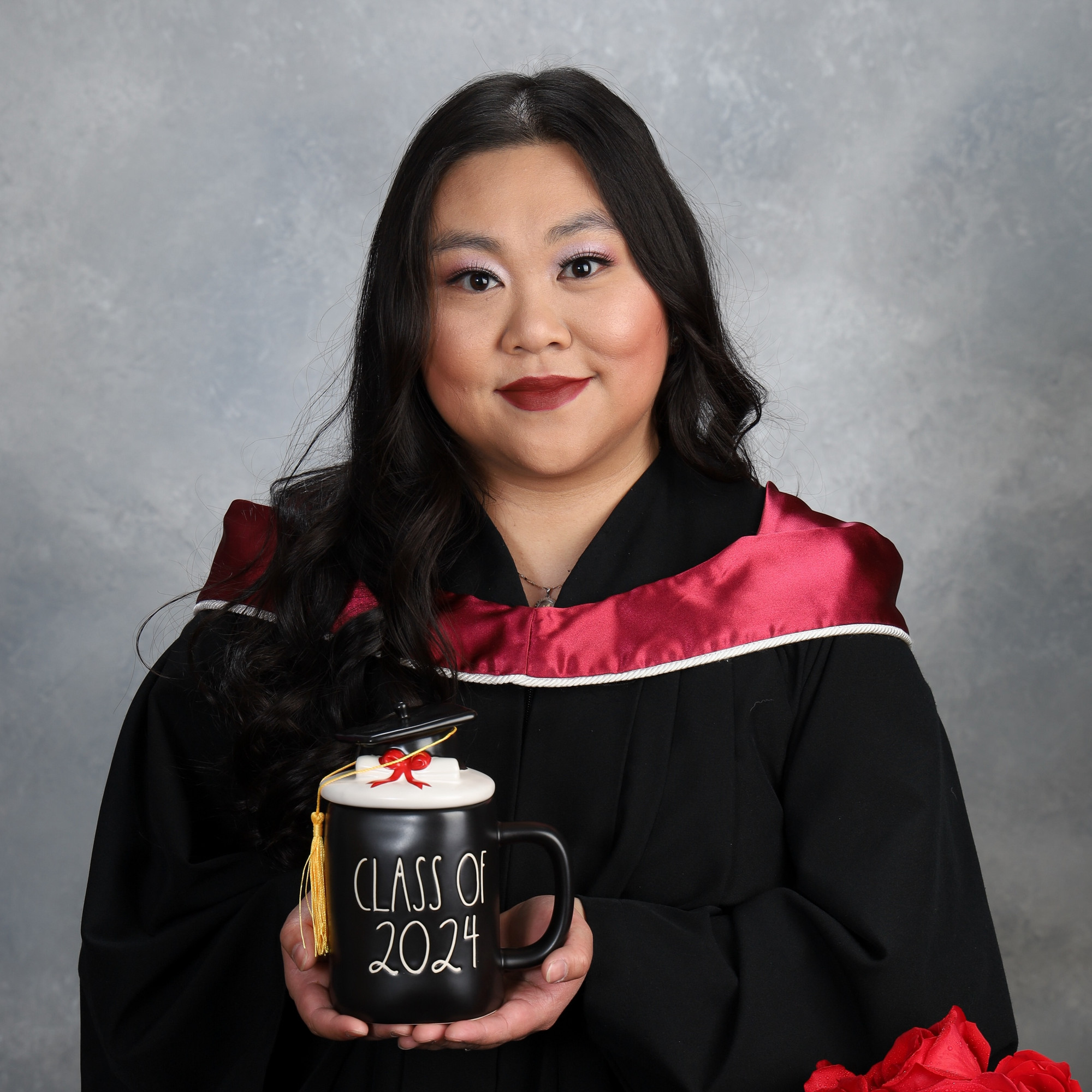Embracing the unexpected leads Karlin Su to a career in nursing and much more
Danica Erickson - 31 May 2024

Karlin Su
Studying nursing, much less earning a master of nursing degree, was not in Karlin Su’s early educational plans. Before completing Grade 12, Su had already received early acceptance to both the University of Alberta’s bachelor of science degree program and an engineering program at a university overseas.
After realizing during calculus class that advanced mathematics wasn't for her, she opted for the U of A sciences program. By the time she reached her second year, Su developed a deep interest in human anatomy and physiology and decided to study nursing.
“I applied to transfer to the Faculty of Nursing and got accepted. I figured I would see how things would go. Even after eight years of being a registered nurse and having worked through a pandemic, I truly believe that nursing chose me as much as I chose nursing,” she says.
After completing her BScN, Su worked as a nurse in emergency, post-operative recovery and home care. Despite the serious nature of her work, Su has never wavered in her commitment to her profession. In fact, it was her experience working through the pandemic that led her to return and complete a master's degree in the nurse practitioner stream.
“During COVID, I decided I wanted to be able to do more. I have always been a keen learner, and I was ready for a new challenge. I wasn’t ready to leave the bedside yet, so a clinical-focused master’s degree seemed like the rational next step,” she says.
She admits to watching a lot of medical dramas on television while growing up, but doesn’t think those shows or any one incident in her life drew her to this work. She does acknowledge that for a self-described lifelong learner like her, the unpredictability and learning opportunities that come with working in an emergency department mean that every day is different and there are always new learning opportunities and challenges.
“In the emergency department, patients don’t usually come in with a diagnosis,” Su points out. “They come in with a myriad of symptoms and I get to exercise my critical thinking. It’s like putting together pieces of a puzzle to figure out the final picture.”
Working in an emergency department can be sobering, but Su also sees it as transformative. In addition to teaching her skills she will use throughout her career, she believes it has also changed her as a person and altered her perspective on life.
“I’ve been a part of a lot of tragic cases and over time, that does take an emotional toll,” she explains. “In a lot of cases, when patients come into the emergency department, their lives are changed forever. It’s a privilege to be a part of their care team on one of the worst days of their lives.”
Creating connections
Prior to returning to university, Su was already familiar with Mentor Us, a student-run, peer-to-peer mentorship program for U of A graduate nursing students that she had heard about from her nursing colleagues. Having enjoyed some on-the-job, informal mentorship experience, she applied to be part of the program when she began her master's studies, subsequently serving as co-director for the duration of her degree.
“Both the profession of nursing and graduate school can be quite scary. It’s nice to be able to talk through this with students who have similar sentiments. Mentor Us is peer based and it can be as formal or informal as you want your match to be,” she says.
Mentor Us hosts fun social and networking activities such as Jackbox Game Night and ghost tours, but also offers career- and goals-oriented events.
“Once a year we host a panel of nursing experts to answer any burning questions that anxious students like myself have about potential future ventures,” she says.
Supporting the community
Su is also contributing her skills and experience to the community. During her undergraduate studies, she volunteered for the Edmonton Police Service Victim Services Unit, an experience she describes as phenomenal.
“I chose to volunteer with Victim Services because I wanted to support and advocate for others, particularly after a traumatic event,” she explains. ”In retrospect, it’s evident that this commitment has been a constant throughout my professional journey. “
While volunteering for Victim Services, she learned about the EPS Chief’s Community Council.
At the time, she didn’t feel she had enough experience to contribute to the council, but last year she remembered learning about it and decided to apply.
“Because I engage with a lot of vulnerable populations and work with a lot of EPS officers within my emergency role, engagement in this role seemed like a natural step. I looked the council up, submitted an application and was selected to be on the council earlier this year!“ she says.
Following convocation, and hopefully some travel adventures, Su will return to full-time work as a nurse practitioner in trauma services. She knows it’s going to be a challenging — but also rewarding — journey.
“I have been repeatedly told that I should consider doctoral studies and initially I thought it was funny, but I guess eight years ago I also laughed at the thought of completing a master’s degree. But here I am, so I haven’t totally discounted that option yet!”